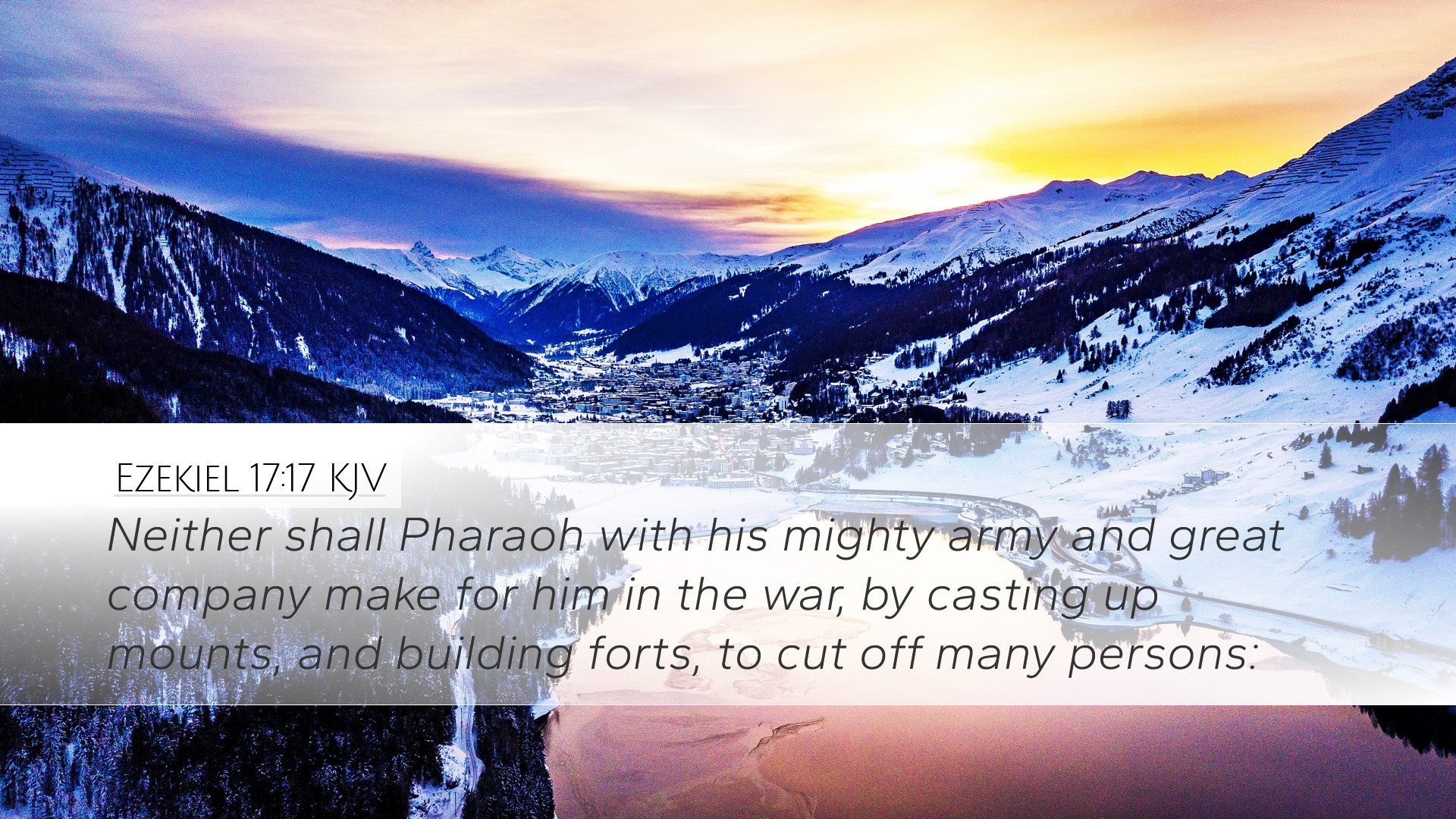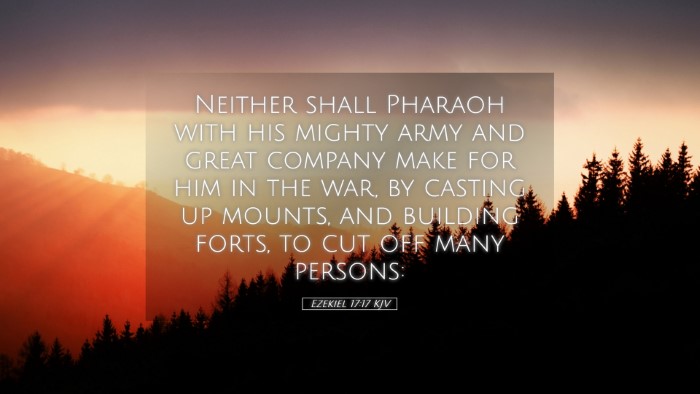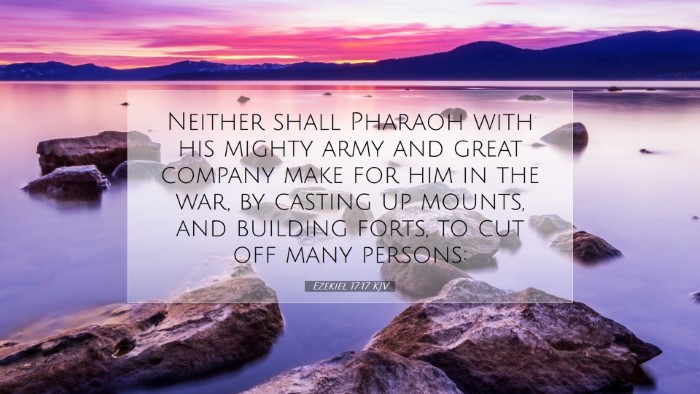Ezekiel 17:17 - Commentary and Insights
Verse Context: Ezekiel 17:17 states, "Neither shall Pharaoh with his mighty army and great company make for him in the war, by casting up mounts, and building forts, to cut off many persons." This verse is situated within a larger prophecy concerning the fate of Judah and its reliance on Egypt as an ally against Babylon.
Summary of Insights
This verse reflects a significant moment in the prophetic ministry of Ezekiel, emphasizing themes of reliance, trust in human power, and the futility of alliances devoid of divine sanction.
Historical Background
Ezekiel prophesied during a tumultuous time for Israel, particularly over the political tensions between Babylon and Egypt. Understanding this historical backdrop is essential to grasp the full meaning of the prophet's words.
- Political Landscape: At the time Ezekiel spoke these words, Egypt was seen as a powerful ally for Judah. However, the prophecy suggests that Egypt's power, represented by Pharaoh and his army, would ultimately be ineffective.
- Rebellion Against Babylon: The backdrop of this verse involves Zedekiah’s rebellion against Babylon, seeking to fortify himself by aligning with Egypt, which Ezekiel warns against.
Theological Reflections
This verse presents deep theological implications regarding reliance on human strength versus divine wisdom and support.
- Trusting in God’s Provision: Commentators like Matthew Henry highlight that reliance on Jehovah guarantees security, while human alliances can lead to tumult.
- Judgment and Mercy: The passage also reflects God's judgment on those who forsake His ways, while simultaneously restoring hope for those who turn back to Him.
Commentary Insights
Matthew Henry’s Commentary:
Matthew Henry emphasizes the futility of Pharaoh's might in contrast to God's overarching sovereignty. He notes that even the strongest forces on earth cannot thwart God's plans. This verse illustrates a warning against misplaced trust.
Albert Barnes’ Notes:
Barnes elaborates on the nature of alliances, indicating that despite the impressive military might of Egypt, it could not prevent the divine judgment that awaited Judah. He emphasizes that human preparations in times of war are irrelevant when God's decree is set. Barnes reminds readers to focus on spiritual, rather than earthly, alliances.
Adam Clarke’s Commentary:
Clarke discusses the historical context further by stressing the innate weaknesses within Egyptian leadership and military strategies. He articulates that no matter how fortified Zedekiah’s position might seem with Egypt's assistance, it would ultimately prove ineffective against Babylon due to divine intervention.
Application for Today's Believers
The insights from Ezekiel 17:17 remain pertinent for modern believers. The themes of reliance, trust, and divine sovereignty are foundational to a faith journey.
- Reliance on God: As modern believers face their own “Babylons,” they are called to place their trust in God rather than in worldly powers or alliances.
- Discerning Alliances: Just as Judah was tempted to ally with Egypt, believers today are cautioned to evaluate their motivations for seeking alliances with secular influences.
- God's Sovereignty: The assurance that God remains in control, regardless of the circumstances, serves as a comfort to believers navigating life's uncertainties.
Concluding Thoughts
Ezekiel 17:17 encapsulates a profound lesson on the futility of relying on mere human strength and emphasizes the unmatched authority of God in directing the course of history. Pastors, scholars, and students are encouraged to reflect on this verse as they seek to understand the balance between human responsibility and divine sovereignty in their lives and ministries.


